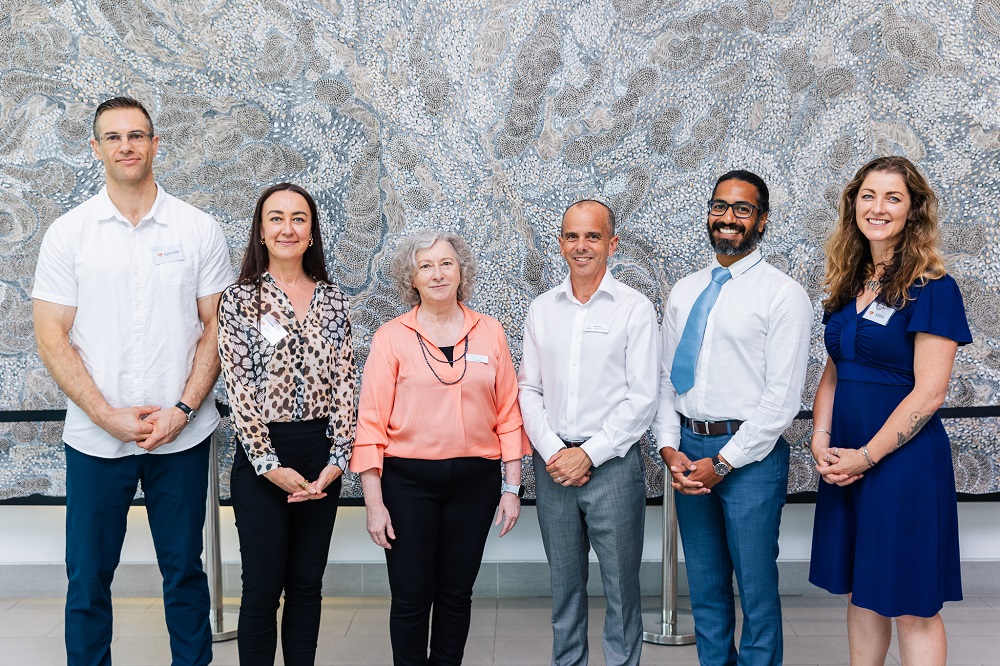Emma Larouche
22 February 2024: On a mission to improve the lives of older Australians, the University of Canberra has established the Centre for Ageing Research and Translation (CARAT) in a bid to improve the health and aged care services available to older people.
The Centre is led by Distinguished Professor Diane Gibson, who is recognised both nationally and internationally for her research on ageing and aged care.
“It’s a privilege to lead a dedicated team of researchers whose expertise across a range of nursing, allied health and social science disciplines is enhanced by a shared passion to advocate for respect and recognition of older people,” Professor Gibson said.

CARAT’s research projects focus on three core themes – dementia and cognition; innovative models of care; and workforce. The Centre is the culmination of work undertaken by members of the University’s Ageing Research Group with theme leaders Professor Kasia Bail, Professor Stephen Isbel and Dr Nathan D’Cunha working as Chief Investigators across several studies already making a real-world impact.
The Sustainable Personalised Interventions for Cognition, Care and Engagement (SPICE) program is one such project. A 12-week post diagnostic and multidisciplinary allied health program for people living with dementia and their care partners, it is conducted in collaboration with Canberra Health Services.
CARAT is also driving the Clinical Placements with Older People (CPOP) program, a Commonwealth-funded initiative with three partner universities, aimed at increasing the quality and quantity of nursing clinical placements with older people, and boosting the recognition of gerontological nursing, in terms of both skills and career pathways.
“The primary health care workforce is ideally placed to maximise the functional health of older people, whether by prevention, maintenance, rehabilitation or reablement,” Professor Gibson said.
“Hospitals and residential aged care also have an important role to play in each of these areas and we need to empower all health professionals who work with older people by providing the skills, resources and care environments that they need to do their best work.”
Associate Professors Jane Kellett, Helen Southwood, Ash Smyth and Dr Ananthan Ambikairajah round out the core members of the CARAT team. They collaborate with over 30 affiliate members from within the University’s Faculty of Health, including UCRISE and HRI, as well as a broader network of scholars from across the University.
Research spans a wide range of disciplines, including epidemiology, nursing, economics, social science, public health, policy analysis, dietetics, food and human nutrition, physiotherapy, pharmacy, occupational therapy, speech pathology, optometry, psychology, and exercise science.
The Centre harnesses a multi-disciplinary approach to translate research insights into policy, programs and industry practices that prioritise human rights, empowerment and wellbeing.
“The majority of older Australians live in their own homes, independently caring for themselves and their households. Many are active participants in their communities through both paid and unpaid work,” Professor Gibson said.
“Older people deserve healthcare and where needed home-based aged care that supports them to continue living full, meaningful and rewarding lives in their community. And it is the same for older people living in residential aged care.
“This is achievable when we have a highly skilled workforce of health professionals who recognise the value of older people in our society and the importance of empowering them to live their best possible lives and continue to participate and contribute to the level they desire.”
A launch event was held at the University of Canberra on Thursday, attended by University colleagues, ACT community members, members of the ACT Legislative Assembly, and partners across the health, aged care and advocacy sectors.
“Our work is already deeply embedded in the Canberra community through collaborations with healthcare providers across the ACT and broader Southern NSW region,” Professor Gibson said.
“We look forward to further opportunities for our work to have a greater impact in improving the lives of older people across Australia and the world.”


